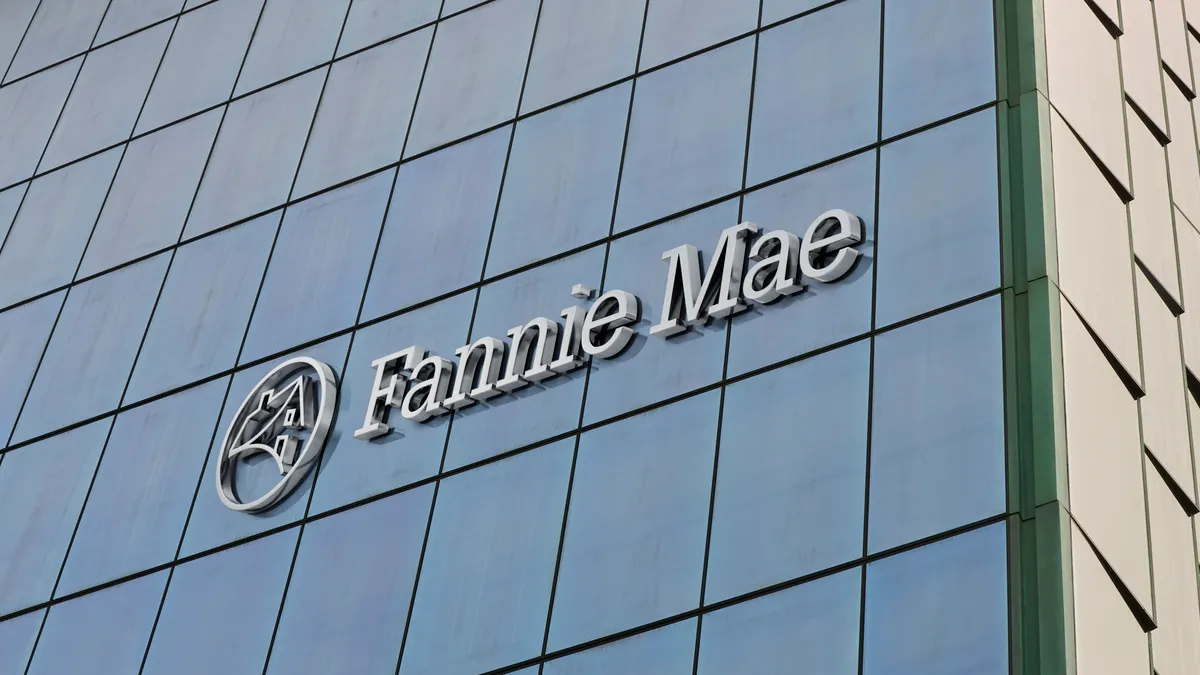Dive Brief:
- Government-sponsored entity and housing lender Fannie Mae is extending its Positive Rent Payment pilot program by another year, ending in December 2024. The original program began in September 2022 and was set to run out at the end of this year.
- The entity partnered with three fintech vendors — Esusu and Jetty, both based in New York City, and Entrata, based in Lehi, Utah — to report on-time rent payments to credit bureaus for renters at participating Fannie Mae-financed properties. The intent of this program is to help renters establish and maintain positive credit scores, according to a Fannie Mae blog post.
- Fannie Mae will cover the cost of collecting and disseminating rent payment data for this extended period for any participating property that uses one of the three approved vendors to gather the data.
Dive Insight:
More than 100 property owners participated in the first year of the Positive Rent Payment program, covering 435,000 units across 2,170 Fannie Mae-financed properties. During this time, 240,000 participants reported their rent payments to credit bureaus, according to the blog post.
Of that number, 23,000 established a credit score for the first time. Nearly 58% of participating renters saw an improvement in their credit score, and renters with existing credit scores saw an average improvement of 40 points. (Renters can choose to opt out of the program, and participants that miss a payment are automatically unenrolled in order to preserve their credit standing, according to Fannie Mae.)
In a poll of the general public conducted on Fannie Mae’s website, the entity found that 80% of renters would like on-time rent payments factored into their credit scores. Eighty-two percent of renters who always pay their rent on time would expect to see an increase in their credit score if their rent payment history was factored in.
Entrata acquired Fannie Mae’s original vendor partner, Rent Dynamics, in July. The multifamily operating system provider reported an average 26-point lift in its participants’ credit scores during the first year of the program.
Esusu, from its own data, reported that 10,000 of its renters had moved from subprime credit scores over the course of the program. More than 18,700 renters that reported through Esusu secured new auto loans during this time, while more than 5,600 took out new student loans. Jetty did not provide any data on its participants.
“By enabling easier and more expansive adoption of positive rent payment reporting, we can knock down [a] long-standing barrier to building credit and help more consumers begin to establish a strong financial and credit foundation,” said Michele Evans, executive vice president and head of multifamily for Fannie Mae, in a press release.









